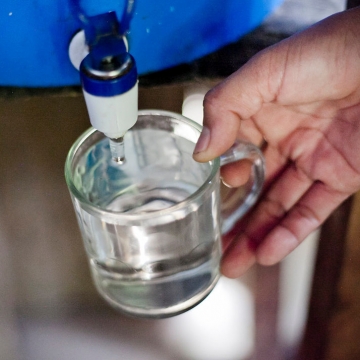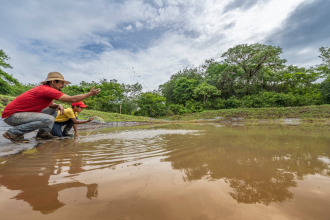Despite work’s importance in people’s overall sense of purpose in life, several studies measuring momentary well-being find that people are very unhappy while at work. These studies have focused on workers in industrialized countries doing paid labor in the formal sector. For a large fraction of humanity, however, “work” is smallholder farming, tending cattle, and collecting water and fuelwood. We measure momentary well-being with the Experience Sampling Method in a sample of 195 subjects in rural Kenya. Subjects were the household’s main water carrier; 93% were women.







